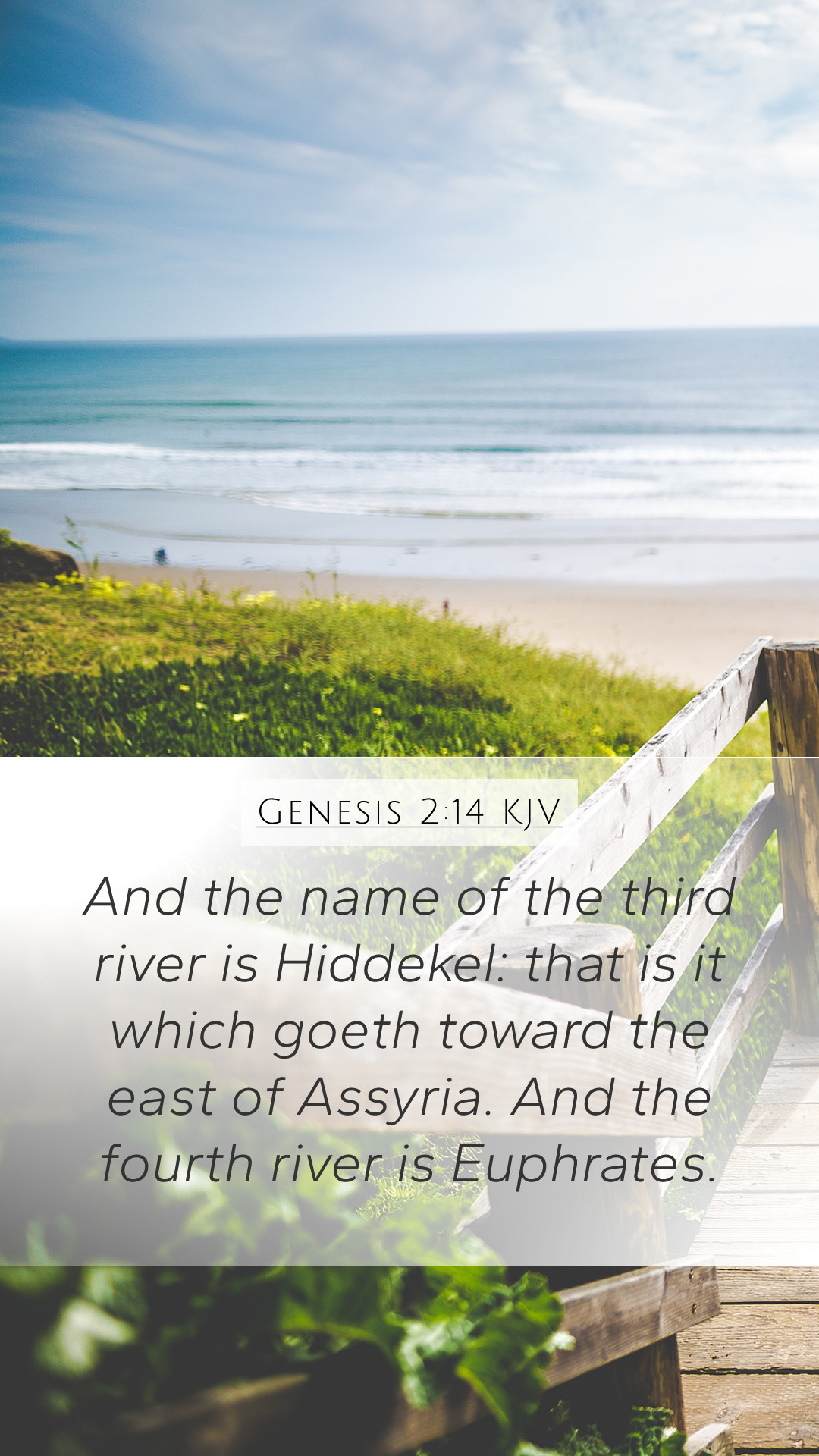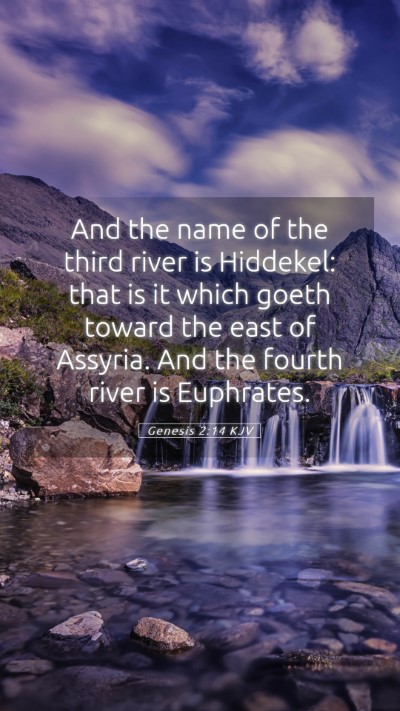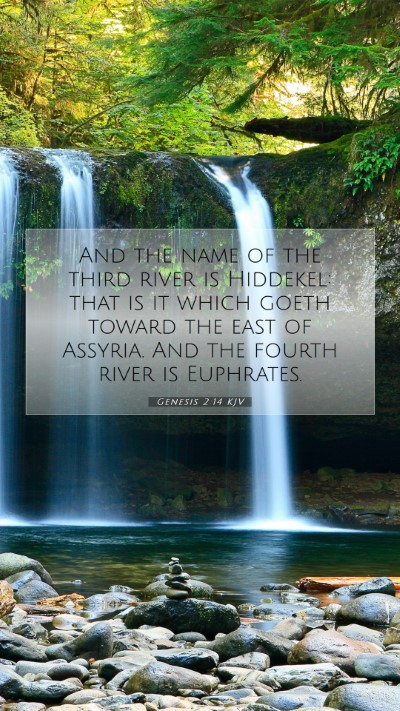Understanding Genesis 2:14: A Comprehensive Bible Verse Commentary
Genesis 2:14 states: "And the name of the third river is Hiddekel: that is it which goeth toward the east of Assyria. And the fourth river is Euphrates." In this verse, we find the explanation of some geographical features that are significant in biblical history and theology. In combining insights from public domain commentaries like those by Matthew Henry, Albert Barnes, and Adam Clarke, we explore its meaning and implications.
Bible Verse Meanings and Interpretations
This verse identifies the Hiddekel and Euphrates rivers, which are essential for understanding the ancient Near Eastern context where early civilization began. Each river mentioned has geographical and symbolic significance, portrayed as blessings from God for the sustenance of humanity.
- Geographical Importance: The rivers mentioned, particularly Euphrates, represent the fertility of the land, indicating God's provision for His creation.
- Theological Significance: The rivers can symbolize the flow of divine blessing, which is critical to human life and agricultural productivity.
- Historical Context: Understanding the geographical placement of these rivers encourages insights into the culture and society of the times, providing depth to biblical narratives.
Bible Verse Commentary Insights
Matthew Henry observes that naming the rivers in the Garden of Eden underscores the beauty and richness of the environment God created for Adam and Eve. This description serves both a literal and symbolic purpose, highlighting the sustenance and divine care present in the manifestation of nature.
Albert Barnes emphasizes that Hiddekel refers to the Tigris River. He suggests that its mention, alongside the Euphrates, points to the fertile crescent—a hub of early human civilization. Barnes points out the unity of God's creation in this part of the world where humanity flourished and worshipped Him.
Adam Clarke further elaborates on the importance of these rivers as boundary markers for Eden. Understanding that Eden itself is located in a specific region enhances our comprehension of biblical geography and reveals God's intention for humanity to dwell in a favorable environment.
Applying Genesis 2:14 to Daily Life
For contemporary readers, Genesis 2:14 invites reflection on God's enduring provision and the nurturing aspects of the natural world. The abundant rivers remind us of how God continuously sustains life and the environment even today.
Bible Study Insights: Enhancing Your Understanding of Scripture
Incorporating this verse into Bible study groups or individual sessions can enhance understanding of the broader narrative surrounding creation and God's care for humanity. Consider using these insights as a guide to deepen your engagement with Scripture:
- Bible Study Groups: Discuss the significance of geographical locations in the Bible and how they relate to God's provision.
- Online Bible Study: Explore interactive maps that illustrate the rivers' paths and their historical relevance.
- Bible Study Resources: Utilize commentaries and maps in your study to broaden your understanding of the context within Genesis.
Cross References to Genesis 2:14
To further enrich your understanding, consider these related Bible verses:
- Genesis 2:10: "And a river went out of Eden to water the garden..." - Talking about the same river system.
- Genesis 15:18: "In that day the LORD made a covenant with Abram..." - Discusses God's promises that relate to these fertile lands.
- Revelation 22:1: "And he showed me a pure river of water of life..." - Connects to the biblical symbolism of rivers as sources of life.
Conclusion: Biblical Exegesis of Genesis 2:14
Genesis 2:14 provides foundational knowledge for understanding significant biblical themes. Through the lenses of historical context, theological implications, and geographical significance, this verse encourages deeper exploration into the meanings of biblical texts. Those seeking interpretations of Scripture will find Genesis 2:14 a rich source of insight that reflects God's abundant provision and care for His creation.
Whether you are studying in a group or individually, alongside Bible study lessons, guides, and plans, the analysis of this verse will enhance your exploration of the Scripture's depth and relevance.


